Understanding ABA Therapy and Its Core Principles
Applied Behavior Analysis (ABA) is a scientifically validated therapy targeting autism and behavioral challenges by analyzing environmental impacts on behavior. ABA is evidence-based and highly individualized, aiming to enhance communication, social skills, and life skills in children with autism spectrum disorder (ASD). Specialized professionals tailor interventions based on detailed assessments to support long-term developmental outcomes, often involving family collaboration for consistency and effectiveness.
What Is ABA Therapy and How Does It Support Children with Autism?
What is the therapy that focuses on autism and behavioral analysis?
Applied Behavior Analysis (ABA) is a scientifically designed treatment that emphasizes how environment influences behavior. It is an evidence-based approach widely used for children with autism spectrum disorder (ASD). ABA uses techniques such as positive reinforcement, understanding the antecedent-behavior-consequence (ABC) model, and ongoing data collection to strengthen beneficial behaviors and reduce harmful ones. Trained professionals, including Board-Certified Behavior Analysts (BCBAs), develop and oversee therapy programs.
How is ABA therapy individualized?
ABA therapy is highly personalized to each child’s unique needs, strengths, and interests. Comprehensive assessments guide therapists in creating custom care plans that set measurable goals. Therapy sessions vary to match a child’s abilities and preferences, making treatment more effective and engaging. Regular monitoring ensures goals are updated for optimal outcomes.
What core skills does ABA therapy develop?
ABA supports skill development across multiple essential areas, including:
- Life skills: Dressing, toileting, eating
- Communication: Verbal and non-verbal skills through reinforcement, pictures, and games
- Social skills: Making friends, sharing, turn-taking via group activities and natural environment teaching
- Emotional regulation: Expressing and coping with emotions, often through play therapy
- Independence: Behavioral management and understanding social cues prepare children for real-world interactions
What is the scientific support and role of professionals in ABA?
As a science-backed method, ABA therapy benefits from extensive research demonstrating its effectiveness, especially when introduced early. Professional involvement is crucial, with therapists using data-driven strategies and collaboration with families to maintain consistency and promote progress. This multidisciplinary approach enhances the long-term quality of life for children with ASD.
The Role of Play and Play-Based Techniques in ABA Therapy
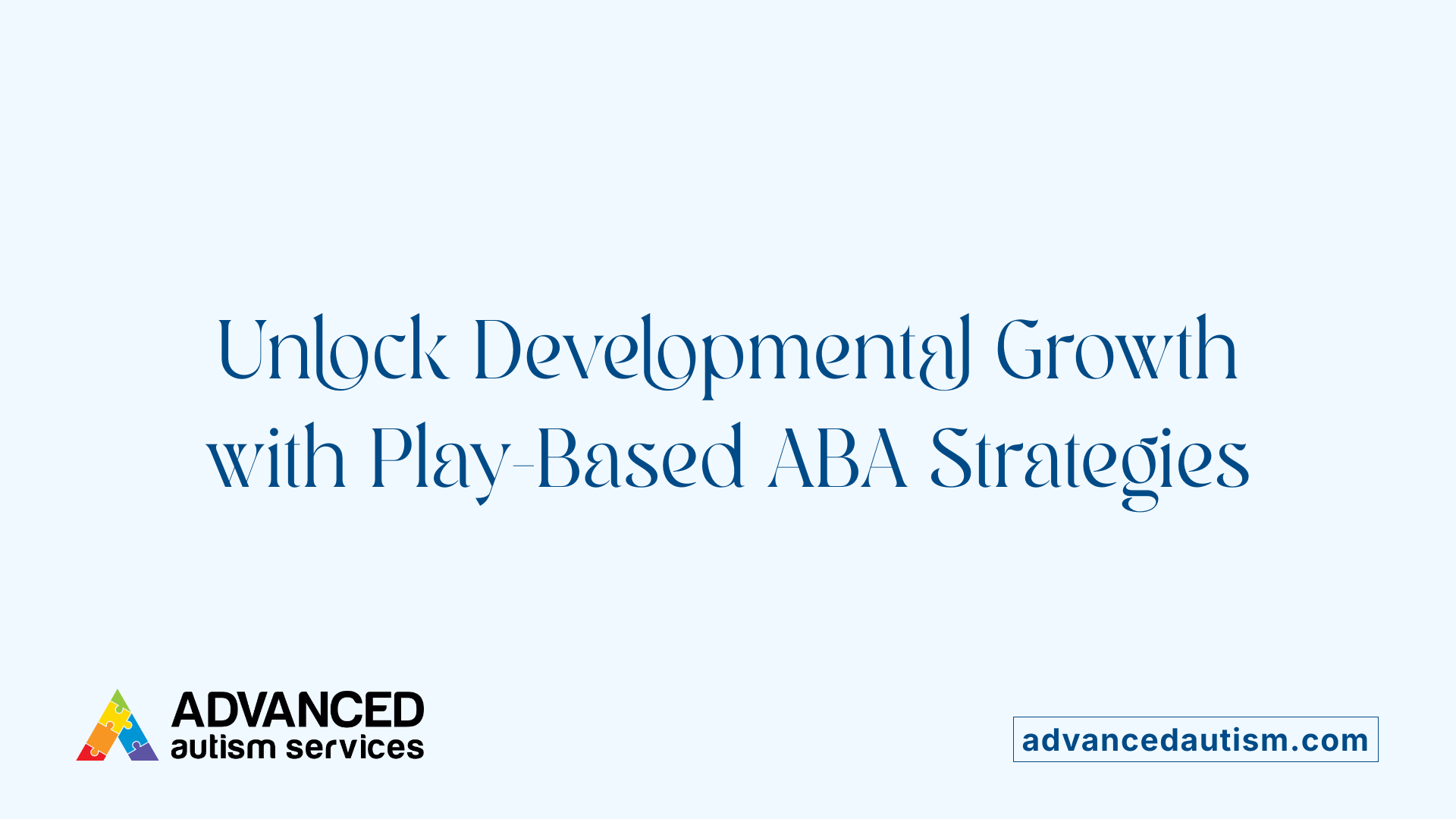
Why is play important in childhood and ABA therapy?
Play is fundamental to childhood development and serves as a vital component in ABA therapy, especially for children with autism. It provides a natural and engaging way to teach essential skills while making therapy enjoyable and effective. By integrating play, therapists can better connect with children, enhancing attention and willingness to participate.
What types of play are used in ABA therapy?
ABA therapy employs various types of play, including structured play, free play, and sensory play. Structured play involves guided activities that focus on teaching specific skills. Free play allows children to explore and express creativity without rigid rules. Sensory play engages the child's senses to support sensory processing and regulatory skills.
What are the developmental and therapeutic benefits of play in ABA?
Play fosters a wide range of developmental skills. It improves communication, both verbal and non-verbal, by teaching gestures, facial expressions, and language through interactive games. Social interaction skills like sharing, turn-taking, and cooperation are also enhanced during play. Additionally, play supports cognitive abilities such as problem-solving and critical thinking while encouraging creativity and imagination.
How does play help with motivation and anxiety reduction?
Using play as a learning tool increases motivation because play is inherently enjoyable and engaging for children. It creates a safe and comfortable environment where children feel free to explore new experiences without pressure, which helps to reduce anxiety during therapy sessions. This positive environment supports learning and generalization of new skills outside of therapy.
Therapists strategically use play not only to teach and assess skills but also to reinforce procedures and maintain motivation, ensuring better therapy outcomes for children with autism.
Incorporating Role-Playing to Enhance Social Skills in ABA Therapy
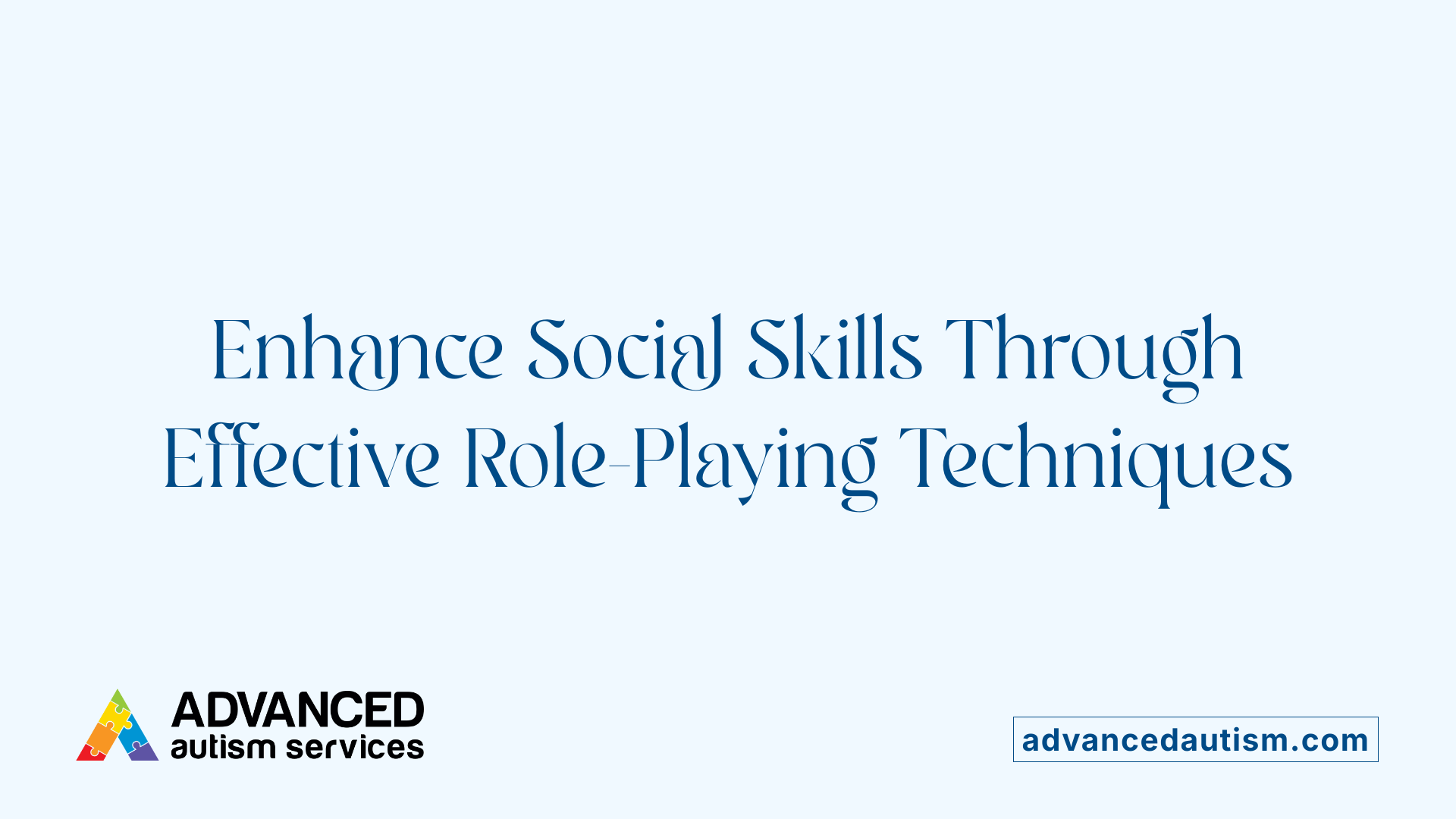
Role-playing as a Method for Social Skill Development
Role-playing is a valuable tool in ABA therapy, providing children with a safe and structured environment to practice essential social skills. It allows children, especially those with autism, to rehearse real-world social scenarios such as initiating conversations, responding appropriately, and cooperating with peers.
Use of Social Scripts and Structured Role-Play
ABA therapists utilize social scripts to illustrate common social interactions, helping children understand the flow and expectations of conversations. Structured role-play activities further enhance this learning by focusing on interpreting social cues, turn-taking, and expressing thoughts clearly. These activities are designed to break down complex social behaviors into manageable steps.
Practicing Social Cues, Turn-Taking, and Communication
During role-playing sessions, children practice recognizing facial expressions, gestures, and tone changes, which are crucial for interpreting social cues. Turn-taking exercises enable them to engage in reciprocal communication, while role-play games foster clearer expression of ideas and emotions.
Feedback and Progress During Role-Playing Sessions
Therapists provide immediate and constructive feedback during role-play, highlighting effective strategies and areas for improvement. This feedback promotes growth and helps children internalize appropriate social behaviors. Over time, role-playing also builds a sense of community and acceptance, reducing feelings of isolation among participants.
How Center-Based ABA Therapy Enriches Role-Playing Opportunities
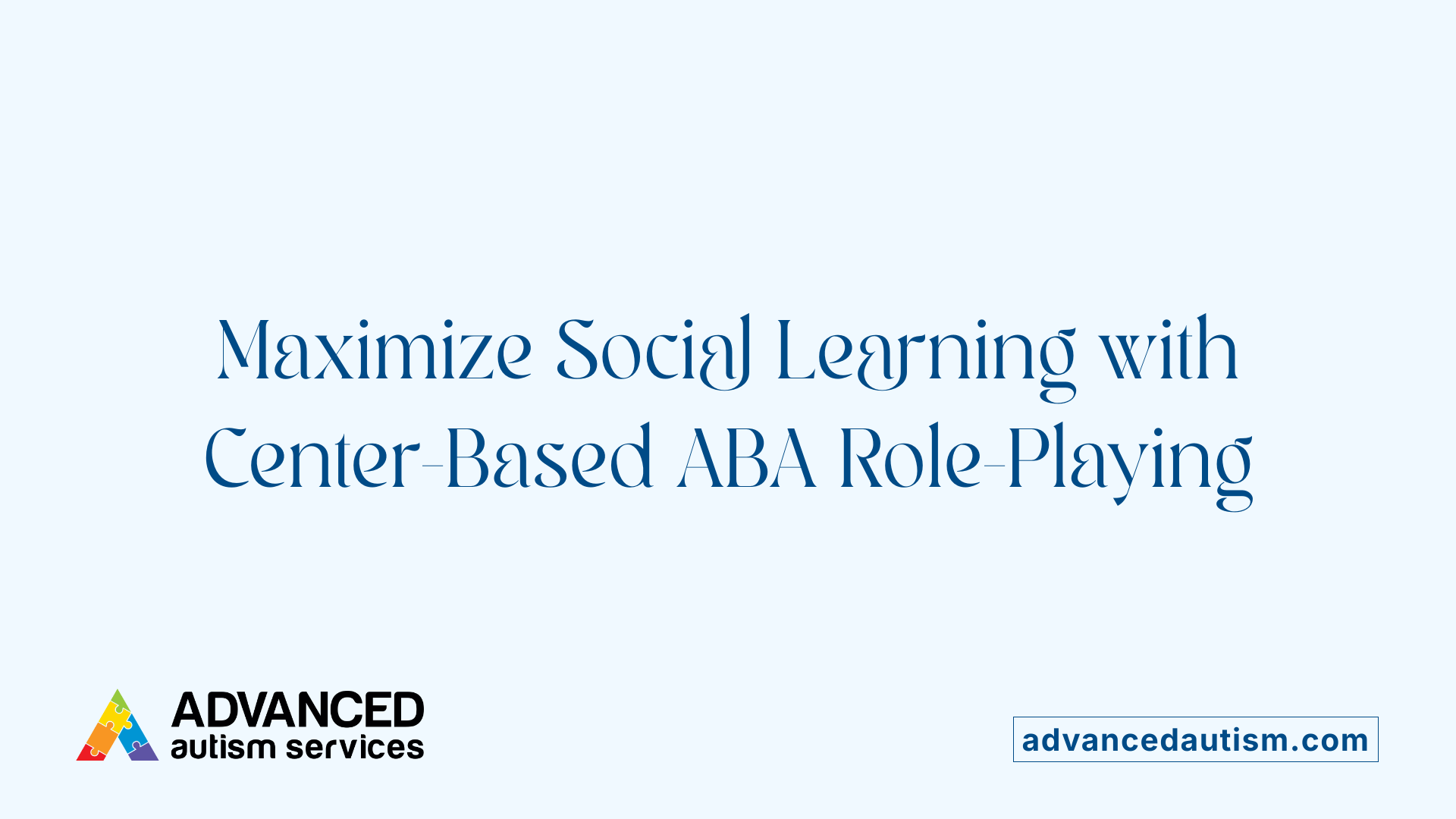
Structured Environment Benefits in Center-Based ABA
Center-based ABA therapy offers a highly structured learning environment which is essential for children with Autism Spectrum Disorder (ASD). This controlled setting provides consistency and routine, making it easier for children to engage in role-playing activities. Structured role-play sessions are designed to teach children social cues, turn-taking, and expressive communication in a safe and supportive atmosphere.
Resources and Equipment Availability
Specialized resources such as visual supports, communication devices, and sensory tools are readily available in center-based ABA settings. These tools enhance the quality of role-playing by providing clear prompts and aids that support understanding and participation. This accessibility allows therapists to tailor role-playing activities to each child’s unique needs, making learning more effective.
Group Activities and Natural Environment Training
Centers promote group activities including cooperative games and natural environment training that simulate real-world social scenarios. Incorporating peer interactions into role-playing helps children practice initiating conversations and responding appropriately, reinforcing social coordination skills. This approach fosters the development of friendship-building abilities and reduces feelings of isolation.
Facilitating Peer Interaction and Social Coordination
Role-playing within a center-based setting creates valuable opportunities for children to interact with peers under professional guidance. Activities are structured to improve collaboration, sharing, and communication, essential components for social success. This social practice helps children adapt their behaviors and responses, preparing them for real-life interactions outside the therapy center.
The Importance of Role-Playing in Building Real-World Social Competencies
Understanding and interpreting social cues
Role-playing serves as a vital tool in helping children with autism learn to recognize and interpret social cues. Through structured role-play activities, children practice reading body language, facial expressions, and tone of voice, which are essential for successful communication in everyday settings. These simulations allow children to become familiar with common social signals in a controlled, supportive environment.
Adapting responses in social situations
During role-playing sessions, children experiment with different ways to respond to social interactions. This practice helps them adapt their behaviors to match varying social contexts, such as initiating conversations, taking turns, or offering appropriate replies. Feedback from therapists and peers during these activities highlights effective strategies and areas needing improvement, promoting continuous growth.
Role-playing for communication and emotional expression
Role-playing games encourage children to express thoughts and emotions more clearly and safely. These activities often incorporate social scripts designed by psychologists, which guide children through typical conversational exchanges like greeting others, asking questions, or sharing feelings. By rehearsing these scenarios, children gain confidence in expressing themselves and managing emotional responses.
Preparation for independent social interactions
Structured role-play environments, such as summer camps and therapy groups, provide opportunities for practicing social coordination and building friendships. These activities replicate real-world social situations, allowing children to generalize learned skills to their daily lives. By fostering social understanding and emotional coping through role-playing, ABA therapy prepares children with autism to engage more independently and successfully in their communities.
Psychological Foundations and Benefits of Role-Playing in ABA Therapy
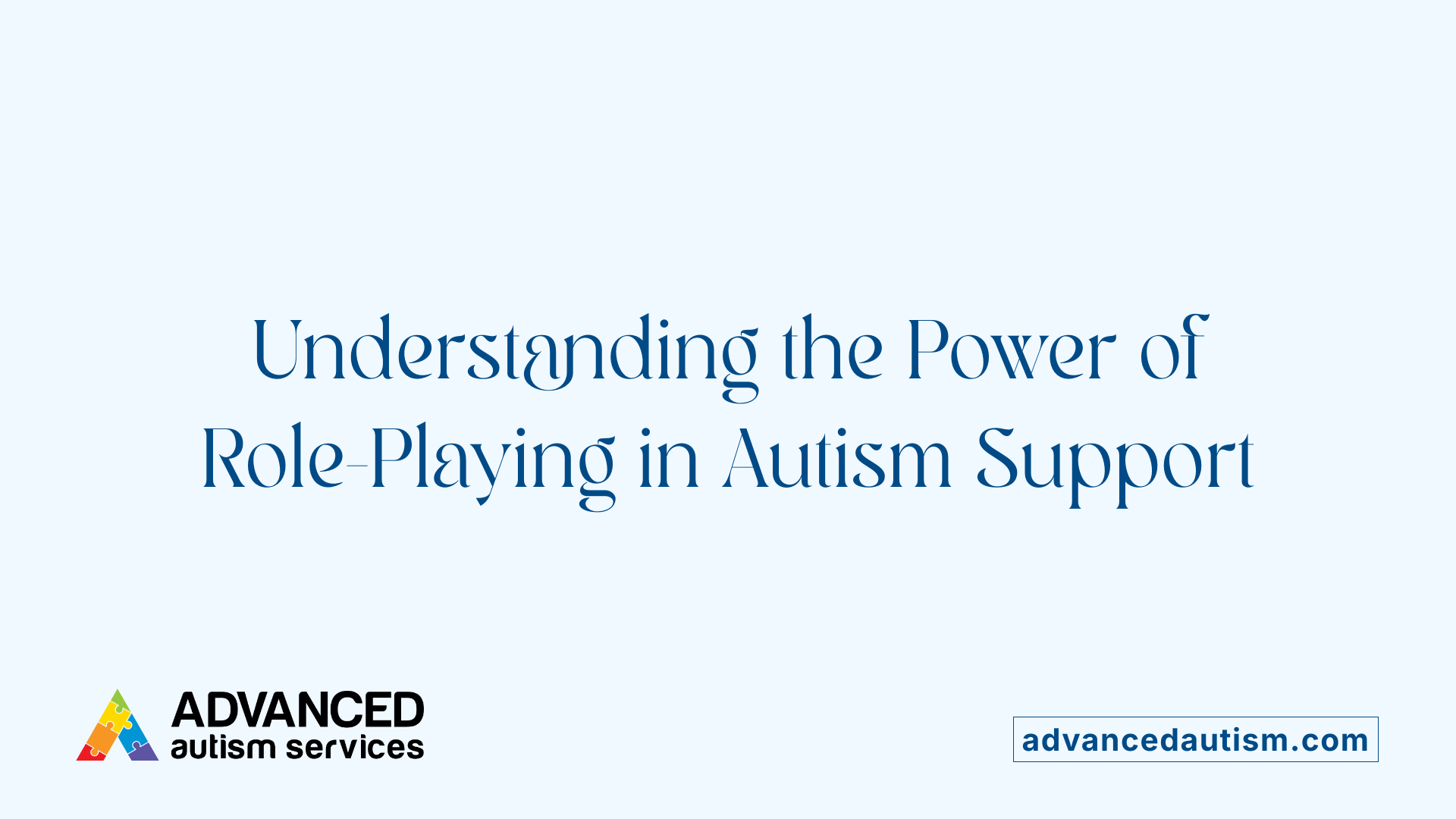
How Are Social Scripts Used to Model Interactions?
Social scripts serve as a practical tool in ABA therapy, helping children with autism understand and navigate social situations. Psychologists design these scripts to model common interactions, such as initiating conversations or responding to questions. This structured approach provides clear, step-by-step guidance that makes social exchanges more predictable and manageable for children.
How Does Role-Playing Create a Shared Mythology to Promote Acceptance?
Role-playing games establish a shared mythology— a common set of stories and experiences—that fosters a sense of community among children with autism. This shared narrative creates acceptance and understanding by connecting children through relatable scenarios and cooperative play. It reduces feelings of isolation by conveying that they are part of a group with similar experiences.
In What Ways Does Role-Playing Reduce Feelings of Isolation?
By engaging in role-playing, children practice communication and social skills within a safe, supportive environment. This experience alleviates loneliness by promoting interaction and social bonding. Since role-playing encourages turn-taking, expressing thoughts, and interpreting social cues, it builds confidence, making real-life socialization less intimidating.
How Do Structured Activities Support Friendship Building?
Structured role-play activities, such as those offered in summer camps or therapy groups, provide opportunities for children to develop friendships through coordinated social exchanges. These activities teach essential skills like sharing, cooperation, and empathy. The predictable format of structured play helps children practice understanding social cues and adapting their responses, preparing them for meaningful real-world relationships.
Parental Involvement and Support Through Role-Playing and Play
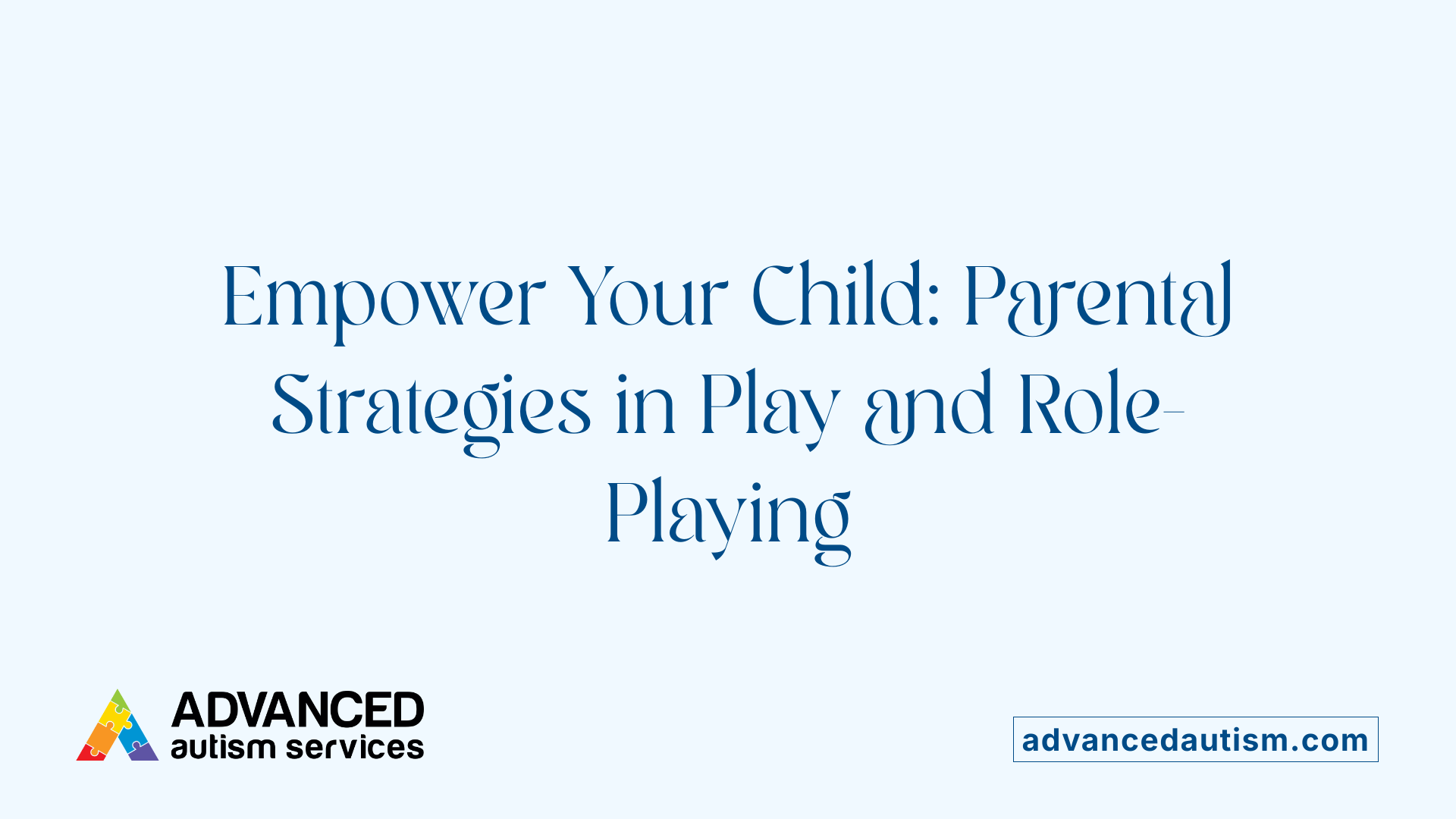
How parents can reinforce ABA goals with play
Parents play a vital role in supporting ABA therapy by using play as a natural way to reinforce learning at home. Joining their child's playtime allows parents to practice therapeutic techniques, such as positive reinforcement and communication skills training, in a familiar setting.
Creating stimulating play environments
A stimulating environment filled with age-appropriate toys and materials encourages children to explore and learn. Parents can set up sensory play areas, use picture cards, or introduce structured games that align with therapy goals, helping children apply skills independently.
Encouraging peer interactions at home
Facilitating playdates and group activities at home promotes social skills like sharing and turn-taking. By encouraging peer interactions in a safe space, parents help children practice social cues and cooperative behavior, which are essential for real-world socialization.
Celebrating progress to reinforce learning
Recognizing and celebrating small achievements during play boosts a child's motivation and confidence. Simple praise, rewards, or special activities help reinforce positive behaviors and make learning enjoyable.
By integrating these strategies, parents strengthen the impact of ABA therapy, creating a consistent and supportive environment that fosters their child's growth and development.
Long-Term Benefits and Positive Outcomes Through Role-Playing in ABA Therapy
How does early intervention with ABA therapy impact quality of life?
Early intervention with ABA therapy plays a crucial role in improving the long-term quality of life for children with autism. Starting therapy at a young age can significantly enhance communication, social, and adaptive skills, laying a strong foundation for future success. Early engagement allows children to acquire essential behaviors and coping strategies that promote independence and better integration into everyday environments.
In what ways does role-playing contribute to the development of communication, social, and adaptive skills?
Role-playing is a powerful tool within ABA therapy, especially for social skill development. It provides a safe space for children to practice initiating conversations, responding to social cues, and taking turns. Psychologists often use social scripts during these activities to teach structured interactions. These role-play scenarios also foster improved emotional expression and help children better understand and interpret social signals. This hands-on learning cultivates critical communication and adaptive behaviors needed for real-world social success.
How does ABA therapy enhance independence and behavioral management?
ABA therapy, through targeted role-playing and play-based techniques, prepares children for independence by teaching behavioral management skills. Children learn to cope with emotions, understand social expectations, and manage their responses effectively. This preparation is vital for everyday real-world interactions and promotes greater self-reliance and confidence.
What role does play have in sustaining motivation and engagement during therapy?
Play, including role-playing games, inherently motivates children and keeps them engaged throughout therapy sessions. Since play is naturally enjoyable, it increases the child's willingness to participate and learn new skills. Play activities reduce anxiety by creating a supportive, stimulating environment, encouraging exploration and continuous skill development. The use of diverse play types ensures therapy remains dynamic and appealing over the long term.
Embracing Role-Playing for Holistic ABA Therapy Success
Role-playing within center-based ABA therapy offers vital pathways for children with autism to acquire and refine social competencies in a structured, supportive setting. By combining individualized treatment plans, expert guidance, and play-based strategies, this approach not only builds essential communication and behavioral skills but also nurtures emotional resilience and peer relationships. Early, consistent engagement in these role-playing activities fosters greater independence and quality of life for children with ASD, demonstrating that play is much more than leisure—it's a powerful therapeutic tool shaping developmental success.
References
- 6 Benefits of ABA Therapy for Children with Autism
- How Early Intervention ABA Therapy Uses Play To Teach
- Can Role-Playing Improve Social Skills in Autistic Kids?
- ABA and School Readiness: The Importance of Play Therapy
- Center-Based ABA Therapy Advantages for Autism Care
- Applied Behavior Analysis (ABA)
- The 7 Dimensions & Core Principles of ABA
- ABA Techniques: Strategies for Behavior Analysts - GSEP Blog



